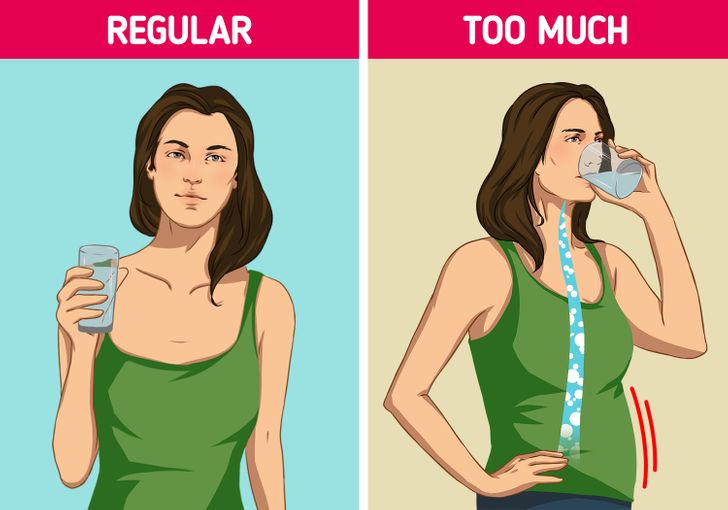Physical Address
304 North Cardinal St.
Dorchester Center, MA 02124
Physical Address
304 North Cardinal St.
Dorchester Center, MA 02124

Contents
Water is essential for good health, but can you ever have too much of a good thing? Overhydration, or drinking too much water, can have serious consequences on your health. While dehydration is a common concern, overhydration is a lesser-known issue that can lead to water intoxication. Let’s explore what happens if you drink too much water and how to avoid it.
Water intoxication, also known as water poisoning, occurs when you consume an excessive amount of water, leading to a disruption in brain function. When you drink too much water, the balance of electrolytes, especially sodium, in your blood can be diluted. This condition, called hyponatremia, can be dangerous as it causes cells, including brain cells, to swell. Symptoms of water intoxication can range from confusion and disorientation to nausea and vomiting. In severe cases, it can even be life-threatening.
Water intoxication is rare but can happen in situations where individuals drink large amounts of water without considering electrolyte losses, such as during endurance sports events or intense training. It can also be a symptom of certain mental health conditions or drug interactions.
There are several signs that you may be drinking too much water. Monitoring the color of your urine can be a helpful indicator – clear urine may suggest overhydration. Additionally, if you find yourself urinating more frequently than usual or drinking water even when you’re not thirsty, you might be consuming too much water.
Other symptoms of overhydration can include nausea, vomiting, headaches, muscle weakness, fatigue, and swelling or discoloration of the hands, feet, and lips. In severe cases, overhydration can lead to seizures, unconsciousness, and coma.
To prevent overhydration, it’s essential to listen to your body’s cues. Drink water when you’re thirsty and pay attention to the color of your urine – it should be light yellow to clear. Avoid consuming more than 1 liter of fluid per hour to give your kidneys time to eliminate excess water.
If you suspect you may be overhydrated or are experiencing excessive thirst, it’s crucial to consult your primary care doctor. They can help determine if your symptoms are related to overhydration or another underlying health issue.
While staying hydrated is important for overall health, it’s equally vital to strike a balance and avoid the risks associated with overhydration. By being mindful of your water intake and listening to your body, you can maintain proper hydration levels without going overboard.